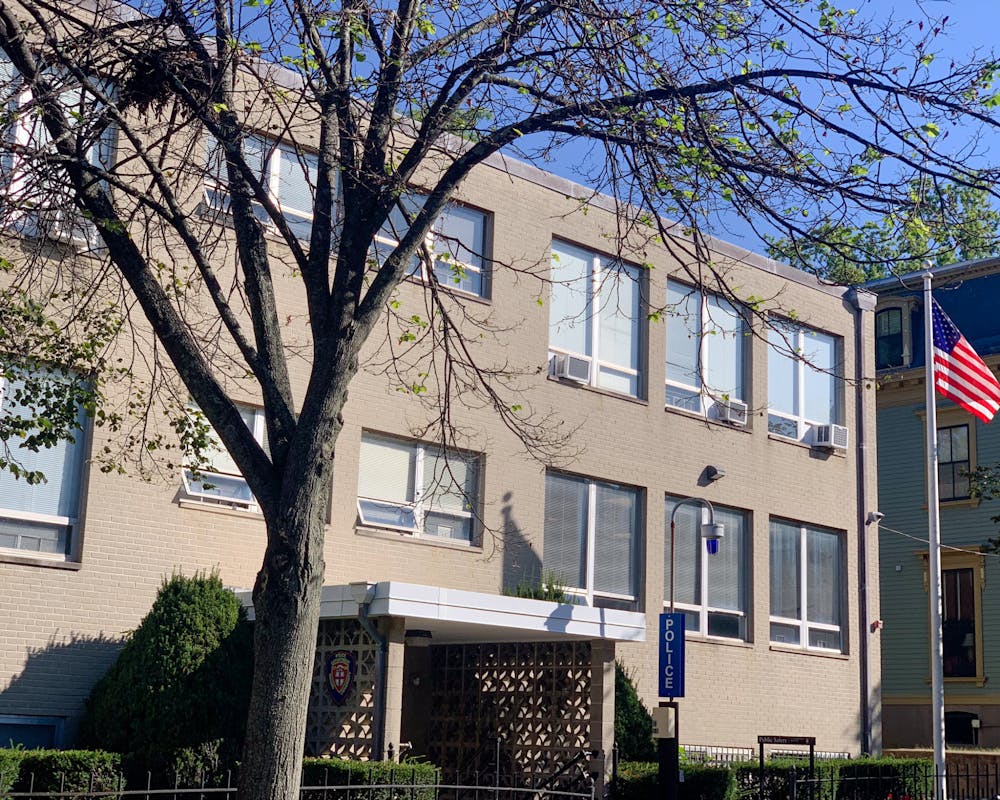Over the summer, the University signed a new collective bargaining agreement with the Brown University Security Patrolperson's Association, the union that represents Department of Public Safety campus police officers, security officers and building guards. Negotiations between the University and the union began in summer 2022 after their existing contract expired that June, The Herald previously reported.
The University also entered into a separate bargaining agreement with a new union of on-campus sergeants that was formed in 2021 under the International Brotherhood of Police Officers.
The agreement with IBPO was signed May 3 and the agreement with BUSPA was signed Aug. 17, according to Marie Williams, vice president of University Human Resources. Both agreements apply retroactively from July 1, 2022 and extend until June 3, 2025.
“The main concern of our members was the erosion of purchasing power based on inflation,” said Edward Myers, the president of BUSPA, regarding the union’s negotiations with the University. The new contract contains raises to reflect the effects of inflation, though Myers added that the raises are “not keeping up with inflation” entirely.
Sergeants, represented by IBPO, are “first-line supervisors” for campus police officers and other employees within DPS, said Brendan McGrath, president of IBPO Local 863.
During the pandemic, sergeants — who were not unionized at the time — were conducting work outside the scope of their defined responsibilities, McGrath said, which prompted them to form a union with the goal of receiving the same benefits and compensation as unionized DPS employees.
Sergeants solicited authorization cards from the National Labor Relations Board and filed for the formation of a union in March 2021, according to NLRB filings. Sergeants voted unanimously to unionize at a vote in May 2021 and the University did not contest the union’s formation, McGrath said.
The new union currently represents eight sergeants, McGrath said. The contract contains built-in pay raises and protects union members from having to perform tasks outside the scope of their roles. By joining IBPO, a national union with a state office in Rhode Island, the sergeants also gain access to legal support and guidance from full-time union staff, McGrath said.
The International Brotherhood of Police Officers, formed in 1964 in Cranston, became affiliated with the National Association of Government Employees in 1970, according to IBPO Local 301’s website. Representatives from the union, which has over 15,000 members nationally, have previously advocated for bills protecting the rights of police officers and opposed bills proposing reforms to the state’s Law Enforcement Officers’ Bill of Rights.
The union also provided legal services to officers involved in the death of Rayshard Brooks in Atlanta in 2020. The union denounced the charges, calling them “premature and politically motivated,” the New York Times reported at the time.
Both Myers and McGrath described amicable negotiations with the University, with Myers noting that the University’s bargaining representatives were “very good negotiators.”
“You can't get everything,” McGrath said. “But I think we've accomplished a lot.”
“For both unions, our negotiations were productive and collegial, and we were able to successfully arrive at mutually beneficial agreements,” Williams wrote in an email to The Herald.
Regarding the length of negotiations, which stretched for more than a year, Williams wrote that Brown believes “our collective bargaining negotiations should take the time needed for both sides to come to an agreement that is mutually satisfactory.”
Jennifer Shim was a University News editor at The Herald.





